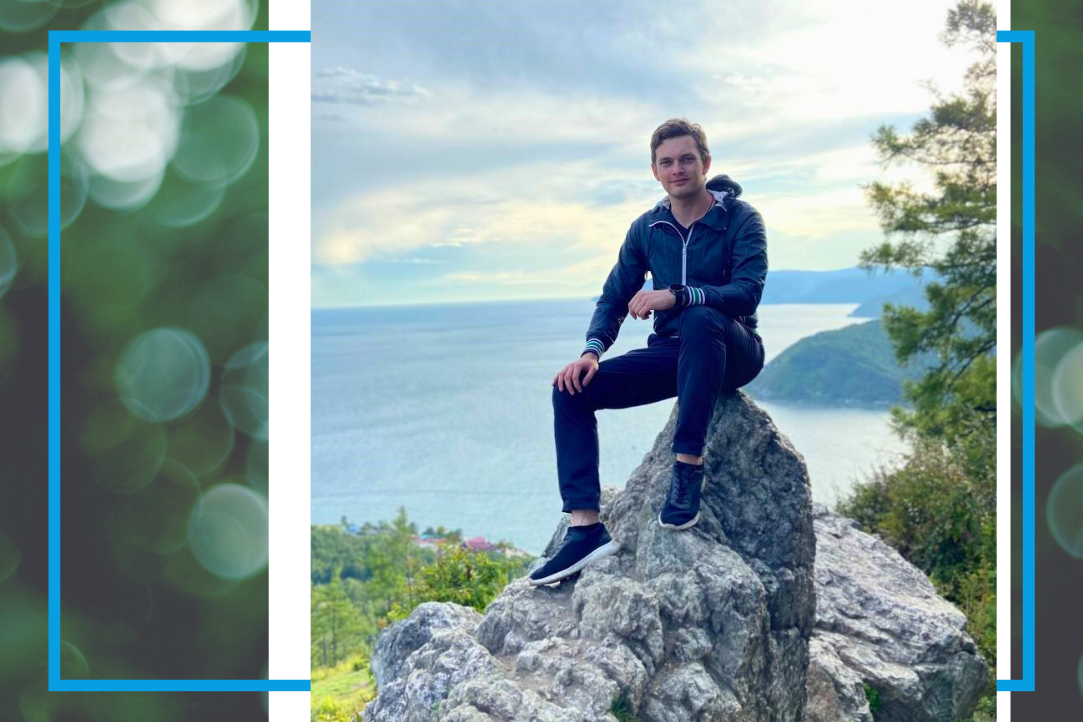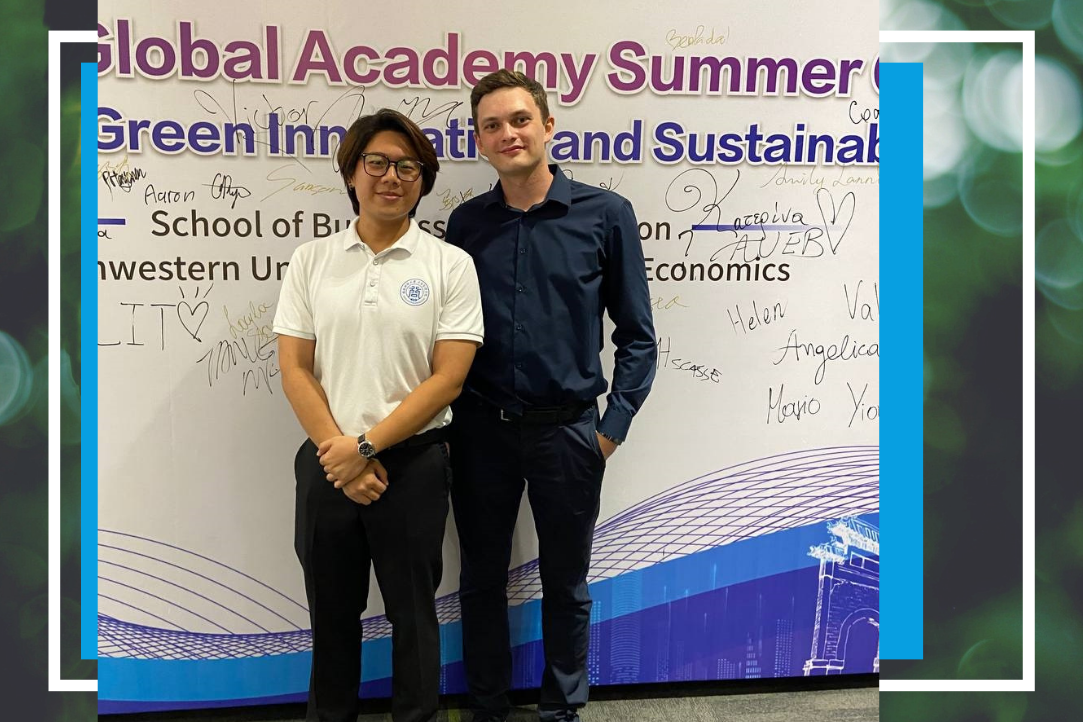Grigory Baranov: “My Word of Encouragement to Future Students: Nothing Is Impossible Here”

Grigory Baranov finished Perm-based A.S. Pushkin School No.9 that teaches advanced courses in physics and mathematics. His passion for chemistry earned him prizes from the local competitions, but the interest he cherished most was mathematics and economics. Grigory learned about ICEF and its master’s programme in his third year of undergraduate studies at HSE Faculty of World Economics and International Affairs and decided to enroll.
Currently in his second year at ICEF, Grigory shares about how many hours he works while studying, his personal achievement he’s most proud of, and what summer study options there are for ICEF students.
Grigory, there were two places we could meet you for this interview – ICEF or Sberbank Analysts Office. It’s your third year of service at Sber. How do you manage to combine study and work?
As a student of ICEF, I know the importance of time. Time is my most valuable asset.
Here, the academic rigour requires us to stay focused, committed and productive.
ICEF taught me how to be a better time manager – an invaluable skill alongside understanding my priorities and setting them right. I wouldn’t have done so well at work and ICEF without these skills.
But I must confess the days I had to choose between classes and urgent work assignments were quite many. There were deadlines to meet and lots of material to catch up on. No time for sleep, let alone my two biggest passions – swimming and traveling.
Now in my final year of master’s study and with few years of work experience, I am fully in control of my life pace and the results it yields. And by the way, I have resumed my swim training.
Which competencies you gained while a master’s student are most useful in your job?
My job deals with electric power industry, vehicle engineering and ways for these two sectors to achieve low-carbon transition plans.
As an industry analyst, I perform a diversity of duties that involve industry performance forecasting, key events tracking, credit and customer service queries execution, and contributing to cross-industry initiatives. Field-specific analytics is not like any other analysis activity. It involves a lot more skills than, say, the currently popular product or system analytics.
The skills I’m using most are the econometric modeling skills. They involve the application of frameworks for reliable performance forecasting.
Another essential set of skills I learned at ICEF and am applying in the workplace is big data management and machine learning. I deal with big data and use Python to do statistical data analysis.
And, of course, my macroeconomic analysis skills. In this master’s programme, Macroeconomics is an underlying course and gives the understanding of causal relations in economics as well as concepts to operate when presenting your argument or opinion. As an industry analyst, I must be aware of the nature of the macroeconomic processes and be able to use this knowledge when evaluating, for example, impact of the base rate change on prices and investment activity within an industry.
What is your typical work week like?
I work 40 hours a week and still manage to attend all classes. There are two electives to do in my final semester and these are taught evenings twice a week, so I’m absolutely able to combine study with work.
In my first year, however, I did only 30 hours a week because classes took place in the daytime almost every day. But to encourage ICEF’s future students, I must say it is quite possible to work and study even when you’re pursuing a programme as challenging as ICEF’s!

Is there anything else you think our new cohorts should be aware of to make the most of their experience?
My experience over these three semesters can be described as non-stop pipeline run of new material, homework, group projects and knowledge tests. ICEF’s programmes are synonymous with demanding learning and high commitment. To succeed in all the courses here I had to stay motivated all the time, relying mostly on my multitasking and time management skills.
This programme involves examinations that can be a real test for students and require some serious preparation. The chance of getting good grades by happy coincidence is very slim. Passing my exams successfully has been my biggest success of the year.
ICEF boasts a unique team of faculty with PhD degrees in economics and social sciences from the world’s top universities. It is important for me as a student to be taught by professors who know how to deliver the most sophisticated of concepts and have answers to the most challenging of questions. This describes ICEF as a place where students can really increase their academic potential and gain knowledge instead of mere working for good diploma grades.
Another thing that adds quality to ICEF’s programmes is the fine-tuned interaction between faculty and students. Here the teachers are open to dialogue and provide assistance on a variety of issues from explaining tricky points to counselling on the learning opportunities and career paths to take.

You mentioned learning opportunities. ICEF offers many and I know you did a course in Chinese. Have you been able to use your Chinese skills during the summer school in China?
True, the international summer schools at ICEF’s partner universities offer an excellent opportunity to improve communication skills and experience the student life abroad. I joined one of Southwestern University of Finance and Economics (SWUFE) Summer Schools that had among participants the students from Europe, North America and Southeast Asia. Not only was I able to practice my Chinese and experience the culture, I learned more about the life in the countries of my groupmates.
Before the SWUFE Summer School, I had been to the East China Normal University (ECNU) in Shanghai as part of the HSE delegation.
China is a very special country in terms of culture, values, cuisine, climate, and technology. It felt like a totally different world at first, and the more I explore it the more I want to return.
How do you see your career to progress?
I am at the stage in my life where I need to decide on what to do next. I think I have some good potential for a career in academia and in the industry.
On the one hand I enjoy doing research and already have ideas for my future energy and climate change research, but on the other hand I see industry as where I can apply my skills and knowledge, try on new roles and enjoy more flexibility to respond to changes in my life. Hopefully, I will be able to combine both so that they can create the best of synergies for me.
What advice would you give to ICEF’s future master’s students?
Be clear about why you need to do this programme and what extent of academic load is acceptable for you. I believe that nothing is impossible. But when it comes to choosing between the easy and the difficult I tend to choose the latter.
I would say that if you are a hard-working person and motivated enough, you will succeed in the environment as challenging as here. But to be on the safe side, make sure you are well-grounded in mathematics and economics. Those who are stand a better chance of performing well and coping with the topics that require advanced knowledge.